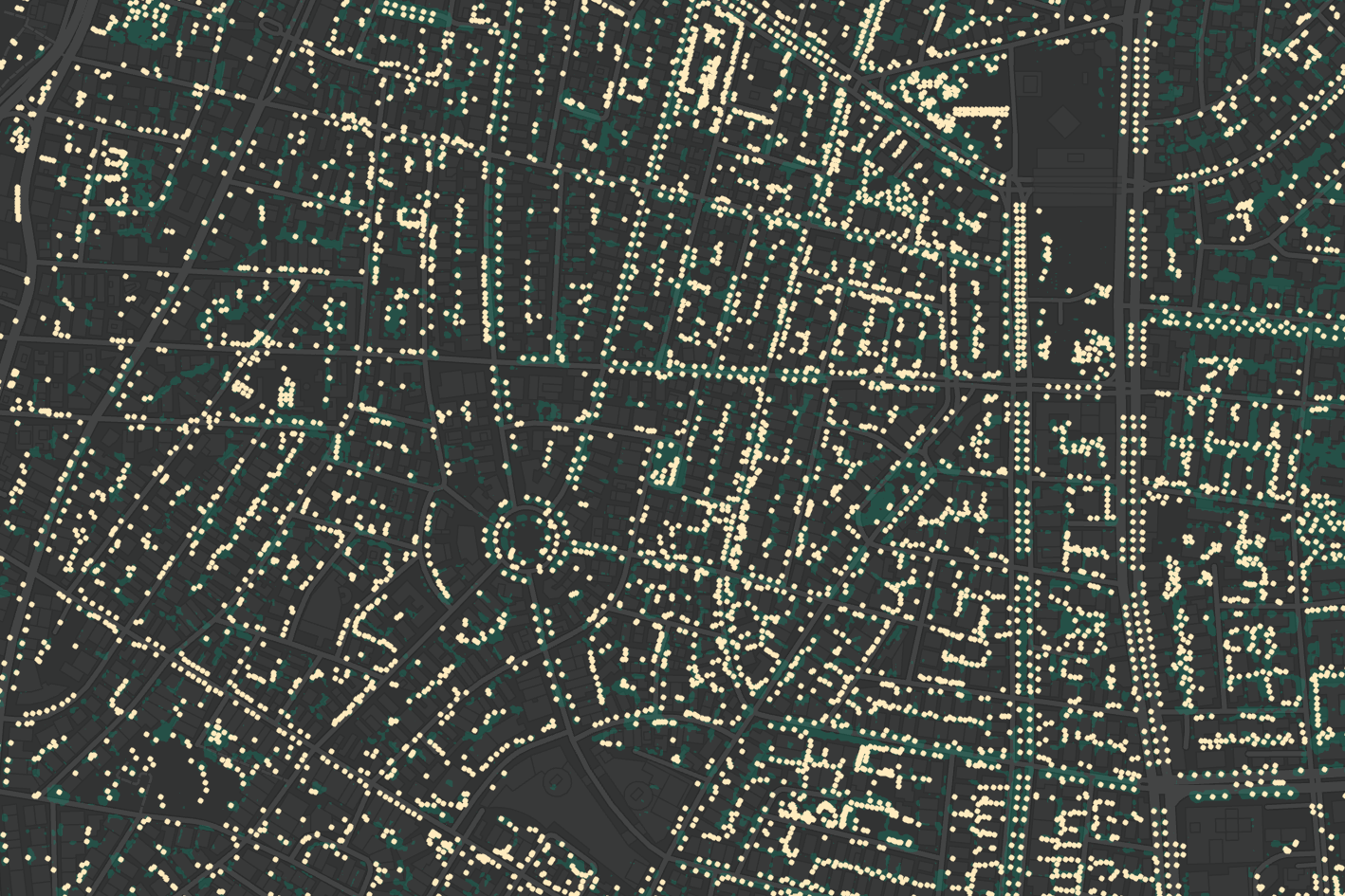2023-ongoing
Funding agency: Israel Ministry of Innovation, Science and Technology
Research leader: Or Aleksandrowicz
Researchers: Sivan Sharabi, Daniel Rosenberg
Planting shade-providing trees in streets and open spaces is known to reduce urban heat and outdoor heat stress, making urban forest densification one of the key measures that is currently being adopted in almost any climate adaptation strategy around the world. Yet, despite the acknowledged climatic significance of urban tree planting, we still lack comprehensive and evidence-based methodology for accurately calculating tree planting potential in cities. This, in turn, impedes efficient and effective allocation of resources to the promotion of urban forest densification. The main objective of the study is, therefore, to develop a novel comprehensive method that will allow for high-resolution, quantitative evaluation of urban tree planting potential based on regularly produced physical mapping of cities. We will develop this method based on the Survey of Israel’s existing physical mapping databases of more than 30 of the most populous Israeli cities.
The outcomes of the study will consist of tree-related interactive maps of the analysed cities and a digital platform that allows users to explore different urban planting scenarios based on the climatic qualities of existing trees and buildings, physical constraints, social equity considerations, and a novel street tree density benchmarking system that we will develop in the study. The platform will enable users to calculate the precise quantities and costs of additional tree planting and to mark prospective planting locations. We expect that the study’s outcomes to significantly improve the capacity to accurately estimate urban forest densification magnitude and costs at the national and municipal levels in Israel and abroad.

